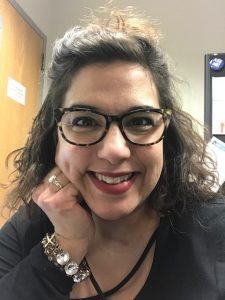Illinois State University students are sharing their personal mental health stories through a new video that aims to provide avenues to help.
Growing out of a semester-long project from Lee Anne Hale’s COM 128 class, and sponsored by the Student Government Association, the video highlights the journey of students working through mental health challenges.
“Mental health is a growing issue. I see it a lot in people of my generation,” said Megan Weeks, a sophomore from Morton, Illinois, who was a member of Hale’s Gender in the Humanities class. “We want students to know that this may be part of their lives, but it does not define them.”
For the class project, Hale gave the simple instructions of doing something that would “make a difference” for underrepresented groups. An instructional assistant professor in the School of Communication, Hale encouraged frank discussions in class. She noted one topic that hit a nerve across the board was mental health.
“We talked about stereotypes and norms, and what life imprints upon us,” said Hale. “The students determined that those who experience a story around mental health really face conversations saturated in stigma, especially males who are socialized to believe the only acceptable emotion to express is anger.”
The class decided to create a video that shared stories dealing with mental health, in the hope of connecting with fellow students who might be struggling with similar issues. “The class felt there was not a strong narrative that said, ‘This is what you might feel in college. It’s really okay, and you can still be successful,’” said Hale.
Finding participants was not a problem, said, Weeks, as so many students experience or know of people who face mental health challenges. “It was friends, roommates, teammates, or the students themselves,” she said. “We had a pool of people who were open to talking to us.”
As COM 128 was a 100-level course, students came from all majors. That left one problem: “None of us had ever shot video before,” said Weeks, a special education major who served on the class production committee. A classmate connected Weeks with Andrew Jacobs, an arts technology major who does video production along with web and set design. Jacobs, a member of the Student Government Association (SGA), saw a chance to support the project on a campus-wide level.
“SGA was on board as soon as I mentioned the initiative,” said Jacobs, who was then serving as membership and outreach chair. The group voted to sponsor the video and promote it through the SGA webpage. “We saw it as a way to talk about the stigma around mental health and get help, especially for underrepresented populations.”
Most of the students featured in the video sought assistance from Student Counseling Services (SCS), so Jacobs suggested including SCS contact information at the end of the video. “It was a natural path to take,” he said. “Not only were we able to talk about an important issue, but we could also talk about possible answers.”
Director of Student Counseling Services Sandy Colbs said the video is a great step in encouraging students to see past the stigmas of mental health. “Our research consistently shows that ISU students do NOT think less of others for seeking counseling, but still students worry that others will negatively judge them,” said Colbs, who added that many students are unaware that free, confidential counseling services are available right on campus. “We appreciate SGA and the COM 128 class for their energy and passion about this topic, and the students interviewed in the film for the strength and for the power of their stories.”
Weeks said she hopes current and potential students identify with the video, and it spurs them into action. “With any label—depression, anxiety, OCD, eating disorders—there is a stigma, but putting a name to what you are feeling means you will be able to receive help. I want the video to give students the courage to say, ‘That sounds familiar. I’m facing that as well.’”





